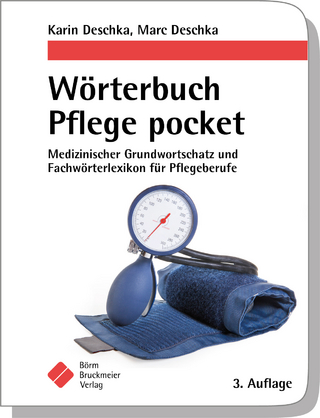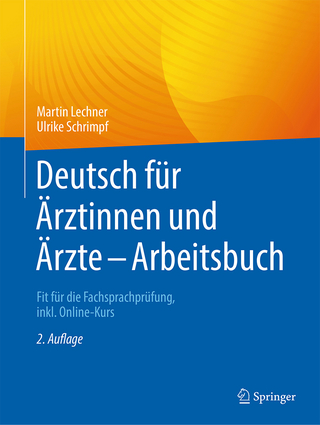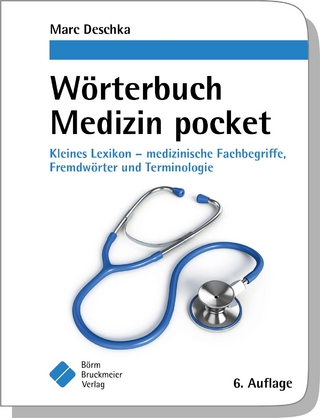
Cerebral Circulation and Metabolism
Springer-Verlag Berlin and Heidelberg GmbH & Co. K
978-3-540-06645-3 (ISBN)
- Titel ist leider vergriffen;
keine Neuauflage - Artikel merken
The orga- symposium with major emphasis on the basic nizers regret the necessity of this decision but aspects of the control of cerebral circulation and wish to thank the many participants who con- metabolism.
Session 1 Autoregulation.- The Lower and Upper Limits for Autoregulation of Cerebral Blood Flow.- Acute Arterial Hypertension and the Blood-Brain Barrier: An Experimental Study in Dogs.- Effects of Local Increases of Venous Pressure on Canine Cerebral Hemodynamics.- The Effect of Lowered Cardiac Output on Cerebral Blood Flow.- Autoregulation of Cerebral Blood Flow During Controlled Hypotension.- Cerebral Blood Flow Autoregulation, Cerebrospinal Fluid Acid-Base Parameters, and Profound Hypotension Induced by Sodium Nitroprusside and Deep Halothane Anesthesia.- Correlation of Regional Cerebral Blood Volume with PaCO2 and Arterial Blood Pressure.- Cerebral Blood Flow and Metabolism with Regard to Autoregulation in Cerebral Perfusion Pressure Experiments.- Summary of Session 1.- Session 2 Chemical Control.- The Effect of Metabolic Alkalosis on Cerebral Blood Flow in Man.- Circulation to the Brain of Rats During Acute and Prolonged Hypercapnia and Hypocapnia.- Primate Pial Arterial Pressure Responses to Changes in Inspired CO2 and Systemic Arterial Pressure.- Dual Control of Cerebral Circulation: Separate Sites of Action in Vascular Tree in Autoregulation and Chemical Control.- Interdependence of Capillary Flow and Regional Blood Flow of the Brain.- Interactions of Ionic Mechanisms in the Regulation of the Resistance of Pial Vessels.- The Effect of Local Changes in Bicarbonate and Potassium Concentration on Hypothalamic Blood Flow.- Cerebral Hemodynamics: The Effect of Hypoxia on Autoregulation and CO2 Reactivity.- Summary of Session 2.- Session 3 Focal Lesions I.- Acute Systemic Hypertension and Resultant Prolonged Focal Cerebral Ischemia.- Cerebral Edema Due to Cerebral Infarction in the Gerbil.- Development and Resolution of Edema in Experimental Cerebral Ischemia and Infarction.- Cerebral Blood Flow in the Baboon Following Carotid Ligation: Effects of Hypoxia and Hypotension.- Atraumatic Transient Focal Cerebral Ischemia in Monkeys.- Alpha Methyl p-Tyrosine and Experimental Stroke.- Energy Metabolites, Water Content, and Catecholamine Changes in a Model of Cerebral Embolic Infarction.- Regional Cerebral Metabolism in Experimental Brain Infarction.- Segmental Reactivity of Cerebral Vessels and Brain Damage.- Summary of Session 3.- Session 4 Focal Lesions II.- False Autoregulation After Cold Injury to the Cerebral Cortex.- CBF and Regional Energy Metabolism in Cold-Injury Edema Following Moderate and Severe Hypocapnia or Hypercapnia.- Quantitative Studies of Experimental Cerebral Edema.- Focal Autoregulatory Disturbances in Middle Cerebral Artery Vasospasm.- Regional Blood Flow in the Brain and in the Cervical Cord in Experimental Head Trauma.- The Experimental Production of Charcot-Bouchard Miliary Arterial Microaneurysms in Hypertensive Rabbits.- Cerebrovascular Response to Hypocapnia in Normal and Brain-Injured Dogs.- Summary of Session 4.- Session 5 Methodology I.- Discrepancies in the Results of Flow Measurements Using Different Isotopes: 85Kr, 133Xe, and 14C-Antipyrine.- The Influence of Capillary Permeability Limitations on the Measurement of Regional Cerebral Blood Flow.- Brain Concentrations of 14C-Nicotine and 14C-Antipyrine After Intravenous Injection.- Variation in Gamma Index (Dimensionless Dispersion) of Hydrogen Gas in a Single Human Brain.- Determination of Diffusion Shunt in Brain and Its Influence on Blood Flow Measurements. A Diffusion Shunt Model.- Heterogeneity of Regional Cerebral Blood Flow and Regional Distribution of Relative Weights of Gray and White Matter in Normal Subjects.- The Effect of Changes in Cerebral Blood Flow on Compartmental Weight.- Regional Cerebral Blood Flow. Evaluation of the Microsphere Technique.- Pulsatile Blood Flow Pattern in Cerebral Circulation.- Heterogeneity of Tritiated Water Uptake by the Brain.- Summary of Session 5.- Session 6 Diffuse Ischemia I.- Irreversible Brain Damage Produced by Hypoxia.- Disturbances of Cerebral Microcirculation after Cerebral Ischemia.- Postischemic Recovery of Nucleotide Metabolism in the Cat Brain.- Cerebral Blood Flow, Brain Water, and Electrolytes during Recovery from One Hour's Cerebral Ischemia.- Anoxia and Critical Oxygen Tension in Brain Tissue.- The Effect of Ischemia on the Pyridine Nucleotide Redox State of the Cerebral Cortex of Cats.- Cerebral Blood Flow and Metabolism at Different Levels of Decreased Cerebral Perfusion Pressure Induced by Raised Intracranial Pressure and Normovolemic Arterial Hypotension.- The Significance of Cerebral Cortical Hypoxia in Experimental Shock Induced by Endotoxin.- Summary of Session 6.- Session 7 Diffuse Ischemia II.- Intracranial Pressure, Brain Blood Flow Regulation, and Glucose and Oxygen Metabolism after 15 Minutes of Circulatory Arrest in Dogs.- Cerebral Metabolic State during Postischemic "Recovery".- An Intrinsic Metabolic Mechanism to Protect the Brain during Progressive Cerebral Ischemia.- Endothelial Ischemia. Scanning (SEM) and Transmission (TEM) Electron Microscope Studies in Rabbit.- A Technique for the Assessment of Cerebral Circulation for Diagnosis of Cerebral Death.- Cerebral Blood Flow and Metabolism in High Altitude Residents.- Factors Improving Postischemic Cerebrovascular Obstruction.- Summary of Session 7.- Session 8 ICP and CBF.- The Effects of the Hydrocephalic Process on Cerebral Blood Flow in the Cat.- Comparative Effects of Increased Intracranial Pressure upon Cerebral Oxygenation Cortical Evoked Potential, and Brain Survival.- The Relationship between Cortical Electrical Activity, Cerebral Perfusion Pressure, and Cerebral Blood Flow during Increased Intracranial Pressure.- Differential Pressures Recorded in Acute Epidural Expanding Lesions. Correlation with Local Cerebral Blood Flow by Hydrogen Clearance in Baboons.- Intracranial Pressure Gradients and Cerebral Blood Flow.- Intracranial Pressure, Cerebral Blood Flow, and Prognosis in Patients with Severe Head Injuries.- Disturbed Regulation of CBF after Acute Brain Injury with Particular Reference to the Effects of MIVP and CPP.- Cerebrovascular Response Pattern during CO2 Rebreathing.- Summary of Session 8.- Session 9 Clinical Stroke.- Cerebral Autoregulation. Regional Cerebral Blood Flow and Cardiohemodynamic Measurements.- Regional Flow in Scintigraphically Positive Vascular Brain Lesions.- Regional Cerebral Blood Flow and CSF Pressure Responses to Stimuli in Cerebral Infarction.- Studies of rCBF on Neuropsychological Disorders Caused by Acute Cerebrovascular Accidents in the Major Hemisphere.- Relationship between Different Levels of CBF and Reactivity to Physiological Stimuli (CO2, and MABP).- Preoperative and Postoperative Cerebral Blood Flow in Patients with Carotid Artery Stenoses.- Monitoring of CBF in the Operating Room during Carotid Ligation.- Microvascular Surgery of the Brain and Regional Cerebral Blood Flow.- rCBF Study as a Test in the Management of Arterial Hypertension.- Correlation of Continuous Electroencephalograms with Cerebral Blood Flow Measurements during Carotid Endarterectomy.- Summary of Session 9.- Session 10 Clinical Miscellaneous.- Abnormal Cerebral Vasomotor Function in Migraine.- Abnormalities of rCBF in Chronic Schizophrenia with Mental Deterioration.- Regional Cerebral Blood Flow, Cerebral Metabolic Rate of Oxygen, and Cerebrospinal Fluid Acid-Base Findings in Patients with Acute Pyogenic Meningitis and with Acute Encephalitis.- Cerebral Blood Flow and Metabolism in Patients with Chronic Acidotic Renal Insufficiency.- The Relationship between Focal Lesions and rCBF Calculated by Bi-Compartmental Analysis and Initial Slope Index in Patients with Acute Brain Injuries.- rCBF and Cerebral Vasomotor Response in Brain Tumors following Dexamethasone Treatment.- Clinical Usefulness of Regional Cerebral Circulation Studies with Sodium Pertechnetate.- Changes in CBF and CSF in Brain Injuries.- Summary of Session 10.- Session 11 Pharmacology and Anesthesia.- Inhibition and Reversal of Prostaglandin-Induced Cerebral Vasospasm.- Effect of Cyclic AMP on Regional Cerebral Blood Flow in Normal Baboons.- Effects of Diphenylhydantoin on Local Cerebral Blood Flow.- Clinical Experience in the Management of Cerebral Vasospasm Using Intravenous Isoproterenol and Lidocaine Hydrochloride.- Barbiturate Protection Against Cerebral Infarction.- Halothane-Associated Preservation of Aerobic Cerebral Processes during Profound Arterial Hypotension.- Mechanism for Cerebral Vasodilation by Halothane.- Summary of Session 11.- Session 12 CBF and Electrical Activity.- rCBF in Focal Cortical Epilepsy.- The Mechanism of Cerebral Hyperemia in Electrically Induced Epileptic Seizures in Man.- Cerebral Metabolism and Cerebral Blood Flow during a Single Seizure in the Cat.- Quantitative Determination of Cortical Microflow and EEG in Graded Hypercapnia.- The Time Course of the Cerebral Circulatory Response to Metabolic Depression.- Effect of Mechanical rCBF Reduction on EEG in Man.- Association of Blood Flow and Acid-Base Change in Brain during Afferent Stimulation.- The Relationship between CBF and EEG during Visual Stimulation in the Rabbit.- Summary of Session 12.- Session 13 Methodology II.- Atraumatic Cerebral Blood Flow Estimation in Man.- Intravenous Isotope Injection Method of Cerebral Blood Flow Measurement: Accuracy and Reproducibility.- A Comparison of Three Isotope Inhalation Techniques for Cerebral Blood Flow Measurement and the Arteriovenous Oxygen Content Difference Method.- The 133Xe Inhalation Method: Assessment of rCBF in Carotid Endarterectomy.- Variability of Repeated Clinical Measurements of CBF Using the 133Xe Intracarotid Injection Technique.- Pitfalls in the Interpretation of Xenon CBF Studies in Head-Injured Patients.- Interpretation of Differences between "8-keV" and "31-keV" Decay Curves during Clearance of 133Xe in Cerebral Tissue of the Pig Recorded.- A Method and Instrumentation for Quantitating Local Cerebral Blood Flow in 144 Subdivisions of Human Brain, Using 133Xe and a Germanium Detector Array.- A 254-Detector System for Measuring Regional Cerebral Blood Flow.- Circadian Rhythm in Cerebral Blood Volume of Mouse.- Summary of Session 13.- Session 14 Neurogenic Control I.- The Effect of Alpha-Adrenergic Blockade on Cerebral Blood Flow during Hypocapnia.- Sympathetic Innervation and Carbon Dioxide Sensitivity.- Evidence for Neurogenic Influences on Cerebral Blood Flow in Man Obtained with the Arteriovenous Oxygen Content Difference Method.- Sympathetic Control of Cerebral Blood Flow in the Unanesthetized Goat.- Effects of Noradrenaline, Serotonin, and Dopamine on the Cerebral Blood Flow in the Dog.- Evidence for the Adrenergic Control of Cerebrovascular Tone.- Summary of Session 14.- Session 15 Neurogenic Control II.- Effect of Sympathetic Nerve Stimulation on Cerebral and Cephalic Blood Flow.- Regional Differences in Beta-Adrenergic Effects on Local Cerebral Blood Flow and Adrenergic Innervation.- Regional Brain Blood Flow during Sympathetic Stimulation.- Autonomic Control of Cerebral Blood Flow and Autoregulation.- Cholinergic and Adrenergic Innervation of Cerebral Vessels.- The Functional Significance of ?-Adrenergic and Cholinergic Receptors at Pial Arteries: A Microapplication Study.- Cholinergic Innervation and Vasomotor Response of Brain Vessels.- The Innervation of Cerebral Arterioles in the Cat.- Summary of Session 15.- Session 16 Neurogenic Control III.- Effect of ?- and ?-Adrenergic Blocking Agents on Regional Cerebral Blood Flow and CO2 Responsiveness in Patients with Cerebrovascular Disease.- The Upper Limit of Autoregulation and the Sympathetic System.- Autoregulation of Cerebral Circulation in Orthostatic Hypotension.- Evidence for Autoregulation in the Human Retinal Circulation.- Preliminary Analysis of the Neurogenic Vasoconstriction of Basilar Artery.- Mechanisms of "Autoregulation" of CBF.- Reversal of Response of Guinea Pig Arterioles to Isoproterenol during Hypoxia.- Summary of Session 16.- Session 17 Metabolism.- The Effect of ?-Aminobutyric Acid (GABA) on Brain ATP Synthesis during Ischemia.- Comparative Effects of Various Metabolic Inhibitors on Cerebral Hemodynamics, Electrical Activity, and Cationic Transport.- Potassium Effects on Energy Metabolism and Epileptiform Activity in the Cat Hippocampus.- Prognostic Value of Carbohydrate Metabolites in CSF. "The Luxury Glucose Supply" of the Brain.- In Vivo Measurement of Cerebral Glucose Metabolism Employing 11C-Labeled Glucose.- A Method for Serial Study of Regional Cerebral Blood Flow and Metabolism.- A Study of pO2 in Cerebrospinal Fluid during Clinical Anesthesia.- The Question of Uncoupling of Cerebral Oxidative Phosphorylation in Acute Cerebral Infarction.- The Effect of Controlled Hyperventilation on the Energy and Acid-Base Status of the Rat Brain.- Cerebral Autoregulation and Metabolism with Deep Hypothermia.- Summary of Session 17.- Session 18 General Discussion.- Evidence for Neurogenic Control of Cerebral Circulation.- Neurogenic Control of Cerebral Circulation.- Incidence and Significance of Vascular Occlusion in Focal and Diffuse Ischemia.- The No-Reflow Phenomenon.- Invasive Versus Noninvasive Techniques for Measurements of rCBF.- Summary of Session 18.
| Verlagsort | Berlin |
|---|---|
| Sprache | englisch |
| Gewicht | 1640 g |
| Themenwelt | Medizin / Pharmazie ► Allgemeines / Lexika |
| ISBN-10 | 3-540-06645-4 / 3540066454 |
| ISBN-13 | 978-3-540-06645-3 / 9783540066453 |
| Zustand | Neuware |
| Haben Sie eine Frage zum Produkt? |
aus dem Bereich


